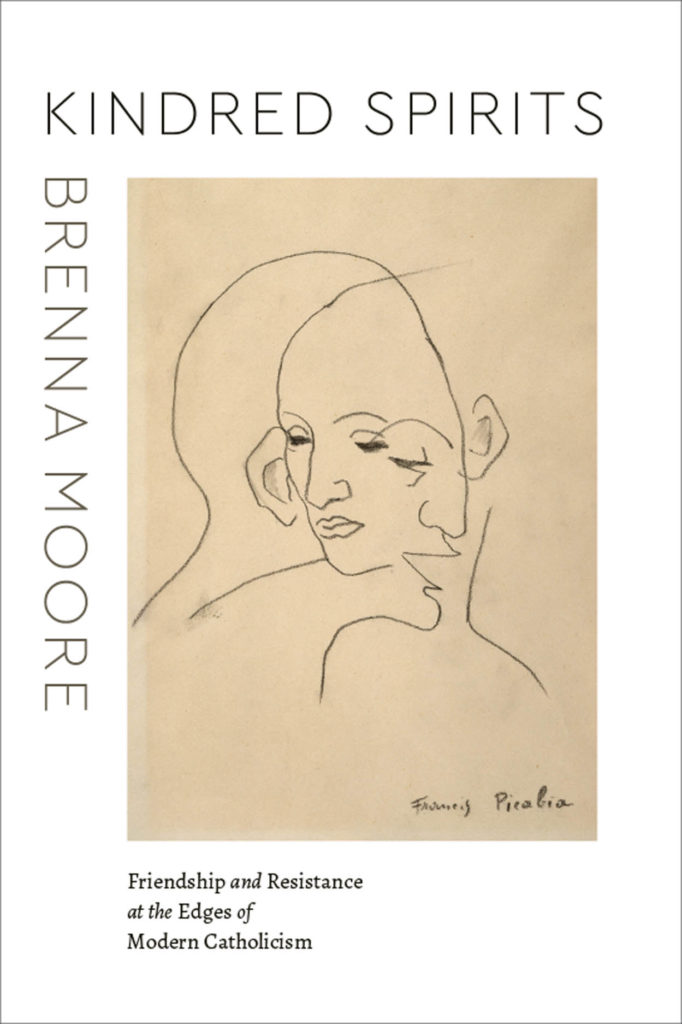 Modernity, it would seem, makes little room for friendship. Its economic logic, which often goes by the moniker neoliberalism, seeks to isolate us as individuals from the wider communal contexts in which we live. The Protestant reformation, as some scholars have contended, played no small part in ushering in modernity’s mechanistic and individualistic ethos and the economic system that accompanied it. The result of this process has been to reduce human beings down to their component parts so that we might be more active consumers and more disciplined workers. In the early part of the twentieth century, this reduction birthed totalitarian and liberal modes of governance alike.
Modernity, it would seem, makes little room for friendship. Its economic logic, which often goes by the moniker neoliberalism, seeks to isolate us as individuals from the wider communal contexts in which we live. The Protestant reformation, as some scholars have contended, played no small part in ushering in modernity’s mechanistic and individualistic ethos and the economic system that accompanied it. The result of this process has been to reduce human beings down to their component parts so that we might be more active consumers and more disciplined workers. In the early part of the twentieth century, this reduction birthed totalitarian and liberal modes of governance alike.
It is this story of modernity and its logics that the figures examined in Brenna Moore’s Kindred Spirits: Friendship and Resistance at the Edges of Modernity seek to push back against. Whether in the close circle of friends formed between Gabriela Mistral and Jacques and Raïssa Maritain, or in the spiritual connection formed between Marie-Magdeleine Davy and Simone Weil, these charismatic and avant garde figures drew on Catholic theologies and cultures that stood against the totalitarian worldview that had come to shape many nations in Europe. Without ignoring the role that Catholicism played historically in the colonization of the world and in promoting fascist politics, Moore shows how these thinkers developed an alternative Catholic modernity to the modern world order. With regard to the latter, Claude McKay, another figure that Moore examines, analyzes the links between racism, Protestantism, secularism, and colonialism in the US. In Catholicism, he saw a spiritual alternative to the dry, Protestant, and racist culture of the U.S. While perhaps naive in his embrace of Catholicism as anti-racist and anti-colonial, his critique nonetheless opened up space for being-with-others that pushed back against the dominant trends of his day. McKay, and the other names mentioned above, are only some of those that appear in Moore’s deeply researched and profound book.
The interlocutors invited to participate in this symposium—Niloofar Haeri, Kathleen Holscher, and Scott Appleby—all bring to bear different disciplinary, tradition-based, and geographical expertise on Moore’s book. The result is a symposium that resembles the form of the book itself. By bringing Moore’s insights to their work, these contributors open up space for thought that break through the modern boundaries of nation, discipline, and thought.
In her response, Niloofar Haeri weaves in her own ethnographic research on women’s prayer in Tehran, Iran, with reflections on the contributions Moore’s book makes to our understanding of religion and modernity. She notes that one of the many lessons of Moore’s book is that doctrine is rarely what attracts people to a religion. Rather, it is more often how a religion speaks to the political and social moment in which people find themselves that brings them to it.
Kathleen Holscher, meanwhile, brings Moore’s account of friendship into her own work on the role of friendship in relations between Catholics and Native peoples in the context of the US settler colonial project. By looking at two examples, one from a Protestant religious organization and one from a Catholic organization, she draws out the differing dynamics of friendships in the traditions as they were practiced at the time—the Protestant idea of friendship in service of the nation-state and the Catholic idea in service of more supernatural ends. While Catholics recognized their responsibility towards the plight of the Native peoples—and ultimately a kind of friendship with them that extended beyond the state—Holscher argues that they nonetheless participated in settler colonial practices that deprived Native peoples of their land and religious practices. Holscher asks us to consider, then, the challenging, and sometimes contradictory, dynamics of friendship among these communities, and others.
Scott Appleby, finally, closely analyzes three key questions that are already marked in the title of the book: (1) What do we mean by modernity? (2) What is the relationship between friendship and political activism? (3) What is modern about modern Catholicism? Appleby contends that there is some terminological instability throughout the text, but that this terminological instability perhaps reflects the shifting grounds of the tradition itself as it has found its way into modernity.
In her response, Moore responds to each of these interlocutors, reflecting in particular on the conceptualization of modernity in Appleby’s essay, the intertwining of her subjects with colonial dynamics in Holscher’s response, and the integrity of the inner spiritual experiences of those she writes about in Haeri’s post. She also looks forward to how the contributors’ responses will impact her future work.
As Appleby notes in his essay, Moore’s book “advances Contending Modernities’ exploration of how ‘identity’ is constructed, contested, policed, and transformed under the shifting conditions of what we loosely refer to as ‘modernity.’” Here, I would add that the contributors, in each of their responses, also further that end by engaging Moore’s insights and taking them beyond the borders of the book and into their own research projects.

